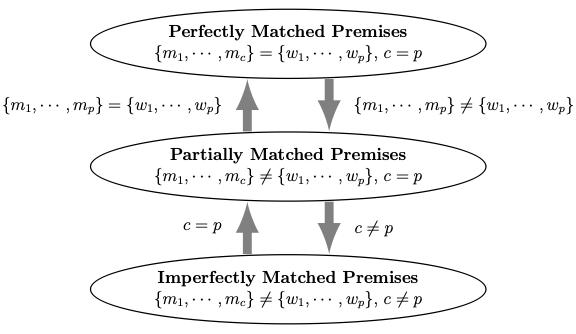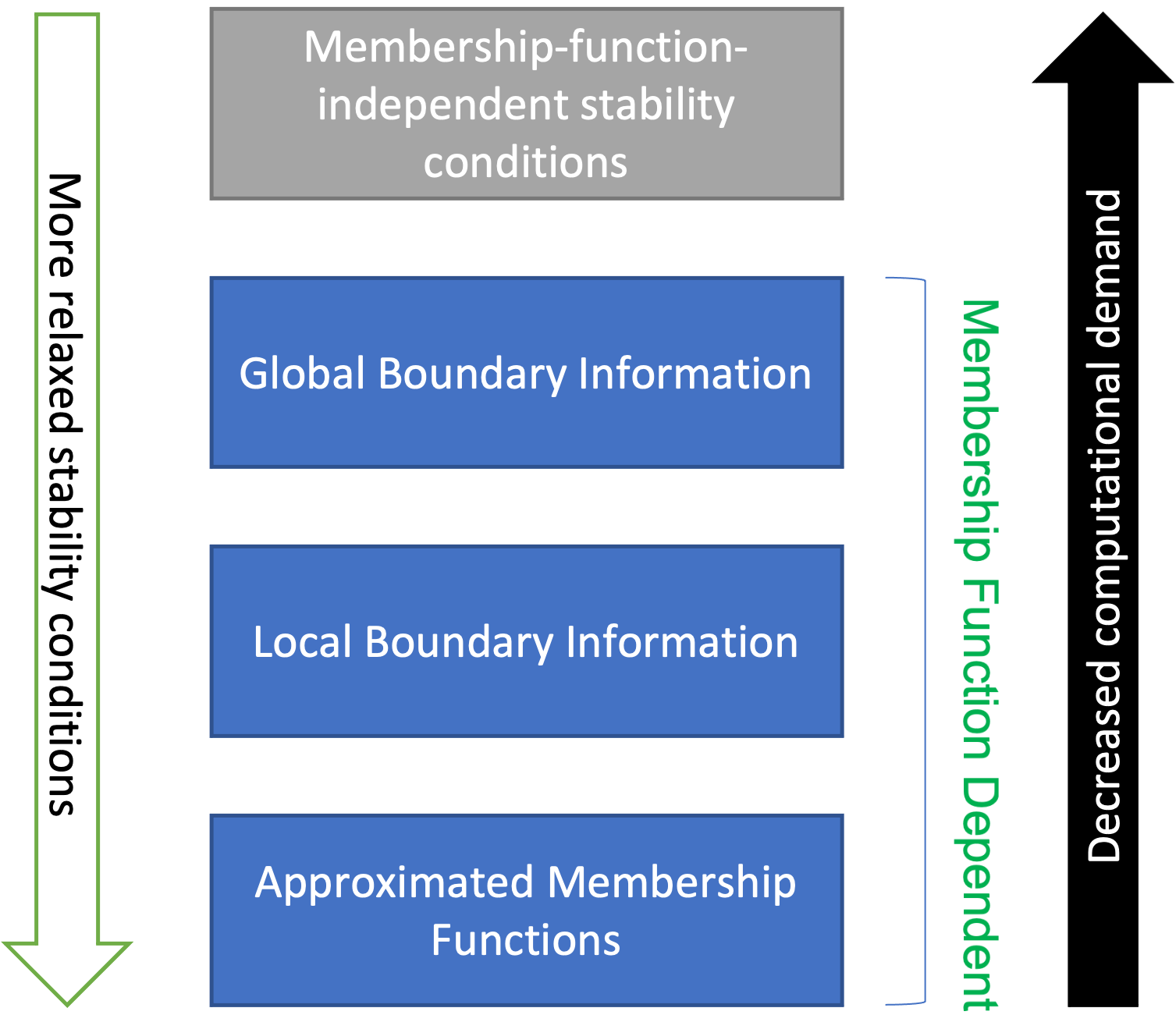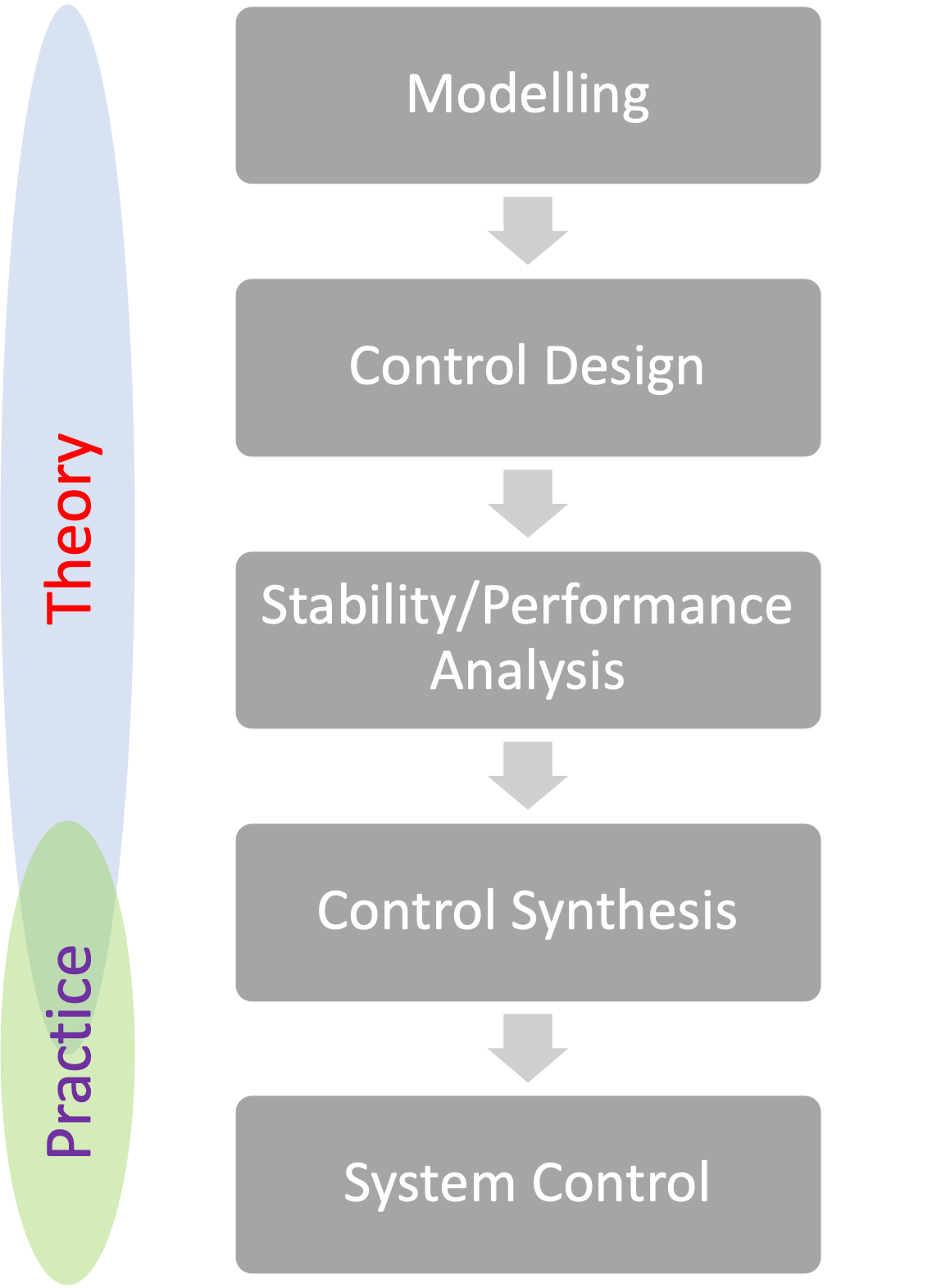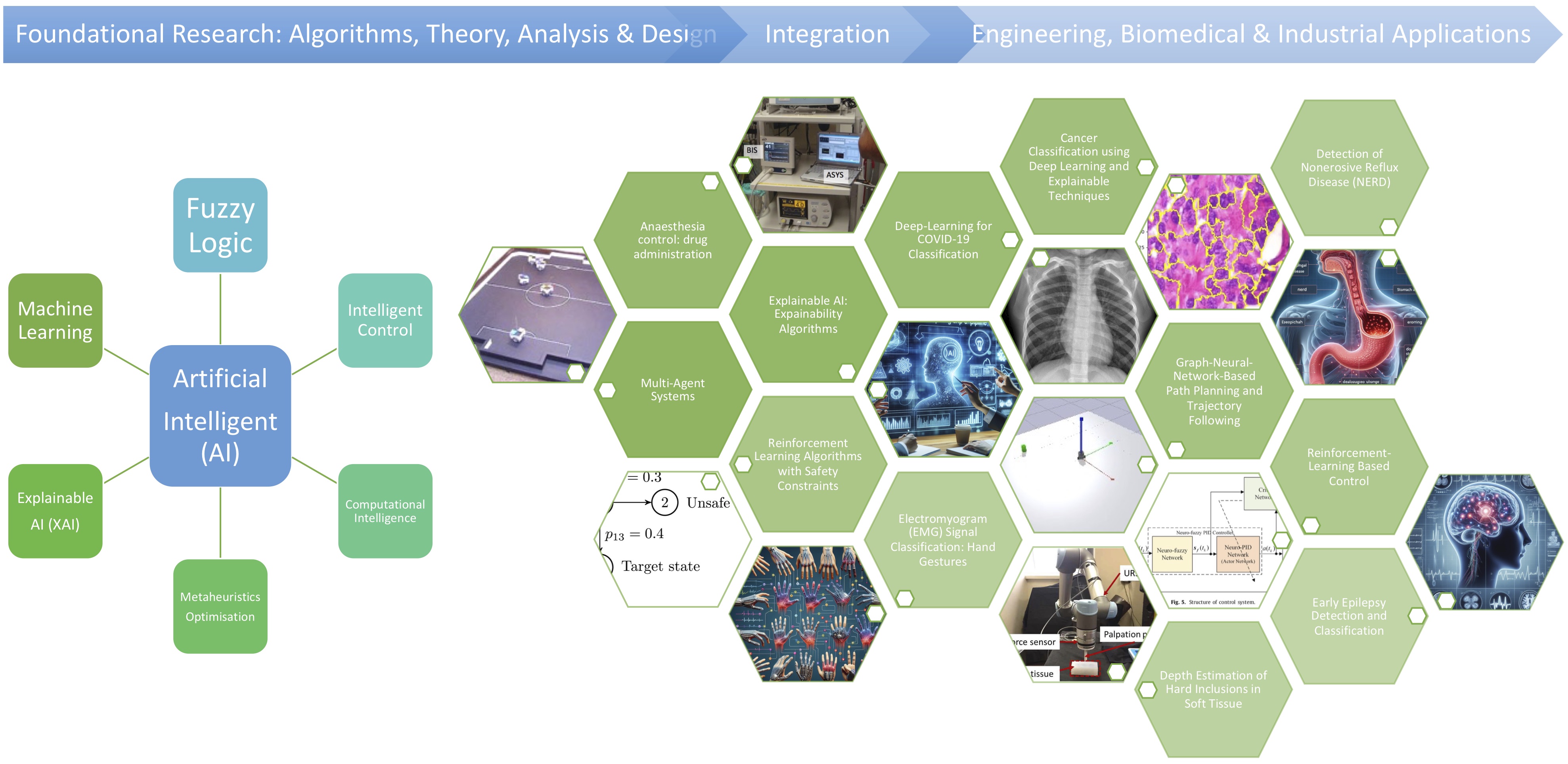Biography

Hak-Keung Lam
BEng (Hons), PhD, FIEEE
Reader in Intelligent Control and Computational Intelligence
Department of Engineering, King's College London
Telephone: +44 020 7848 1240
Email: This email address is being protected from spambots. You need JavaScript enabled to view it.
Office: S2.14, Stranding Building, Strand Campus
Research Group: Centre for Robotics Research (CORE)
H. K. Lam received the B.Eng. (Hons.) and Ph.D. degrees from the Department of Electronic and Information Engineering, The Hong Kong Polytechnic University, Hong Kong, in 1995 and 2000, respectively. During the period of 2000 and 2005, he worked with the Department of Electronic and Information Engineering at The Hong Kong Polytechnic University as Post-Doctoral Fellow and Research Fellow respectively. He joined King’s College London in 2005 as a Lecturer and is currently a Reader.
My current research interests include intelligent control systems, computational intelligence and machine learning.
I have authored/co-authored over 340 publications (see Publications) (3 monographs, 9 editorials, 2 edited book, 6 book chapters, 212 journal papers and 122 conference papers) in this field. My citation information can be found in ResearcherID and Google Scholar. He serves as an associate editor/area editor/guest editor/editorial board member (see Editorship) for a number of journals, a program committee member (see Programme Committee Member) and international advisory board member (see International Advisory Board Member) for various international conferences, and a reviewer (see Reviewer) for various books, international journals and international conferences. He has organised a number of special sessions for intenational conferences (see Special Session Organiser). I am an IEEE Fellow.
I am the coeditor for two edited volumes: Control of Chaotic Nonlinear Circuits (World Scientific, 2009) and Computational Intelligence and Its Applications (World Scientific, 2012), and the author/coauthor of the books Stability Analysis of Fuzzy-Model-Based Control Systems (Springer, 2011), Polynomial Fuzzy Model Based Control Systems (Springer 2016), Interval Type-2 Fuzzy-Model-Based Systems (Springer, 2016). (see Books). His co-authored papers "J.S. Dai, H.K. Lam and S.M. Vahed, “Soil Type Identification for Autonomous Excavation Based on Dissipation Energy,” Proceedings of the Institution of Mechanical Engineers, Part I, Journal of Systems and Control Engineering, vol. 225, no. 1, pp. 35-50, 2011" received SAGE Best Paper Award in 2011; "Xiaomiao Li, Chuang Li, H.K. Lam, Fucai Liu and Xudong Zhao, “Stability analysis of fuzzy polynomial positive systems with time delay,” in Proc. of 2014 International Conference on Fuzzy Theory and Its Applications (iFuzzy2014), November 26-28, 2014, Kaohsiung, Taiwan pp. 53-57" received Best Paper in Theory Award; "Hongyi Li, Xingjian Jing, H.K. Lam and Peng Shi, “Fuzzy sampled-data control for uncertain vehicle suspension systems,” IEEE Transactions on Cybernetic, vol. 44. no. 7, pp. 1111-1126, Jul. 2014" received Andrew P. Sage Best Transactions Paper Award.
I was named as a Highly Cited Researchers since 2018. Extracted from Web of Science, it states that "This list recognizes world-class researchers selected for their exceptional research performance, demonstrated by production of multiple highly cited papers that rank in the top 1% by citations for field and year in Web of Science. Of the world’s scientists and social scientists, Highly Cited Researchers truly are one in 1,000.".
Visualised Summary of Expertise and Applications
Summary of Impacts and Controbutions: Breakthrough in Fuzzy-Model-Based Control Theory
Impacts and Influences:
- Creation of two new subfields of research areas:
- Membership-Function-Dependent (MFD) Analysis
- Interval Type-2 (IT2) Fuzzy-Model-Based Control (FMBC) Framework
- Inspiration for fellow researchers, leading to follow-up research results and advancing the field
Innovations and Contributions:
- Broke through long-standing challenges in stability analysis, resulting in state-of-the-art methods with the most relaxed stability analysis and the most flexible design approaches.
- Innovated novel MFD stability analysis methods using complicated and significant information for stability analysis and control design.
- Pioneered the framework of Interval Type-2 (IT2) FMBC Systems, resulting in an advanced, systematic and efficient control framework capable of handling the inevitable nonlinearity and uncertainty in practical systems.
- Forged novel modelling techniques and frameworks for IT2 fuzzy models, specifically tailored for analysis and design, effectively addressing nonlinearities and uncertainties.
- Underpinning stability analysis methods and control synthesis techniques, providing a robust foundation for their application and effectiveness.

A block diagram of model-based control system

The proposed three categories of membership function matching

The proposed membership-function-dependent (MFD) analysis

The process integrating the fuzzy-model-based control theory and practical control applications

